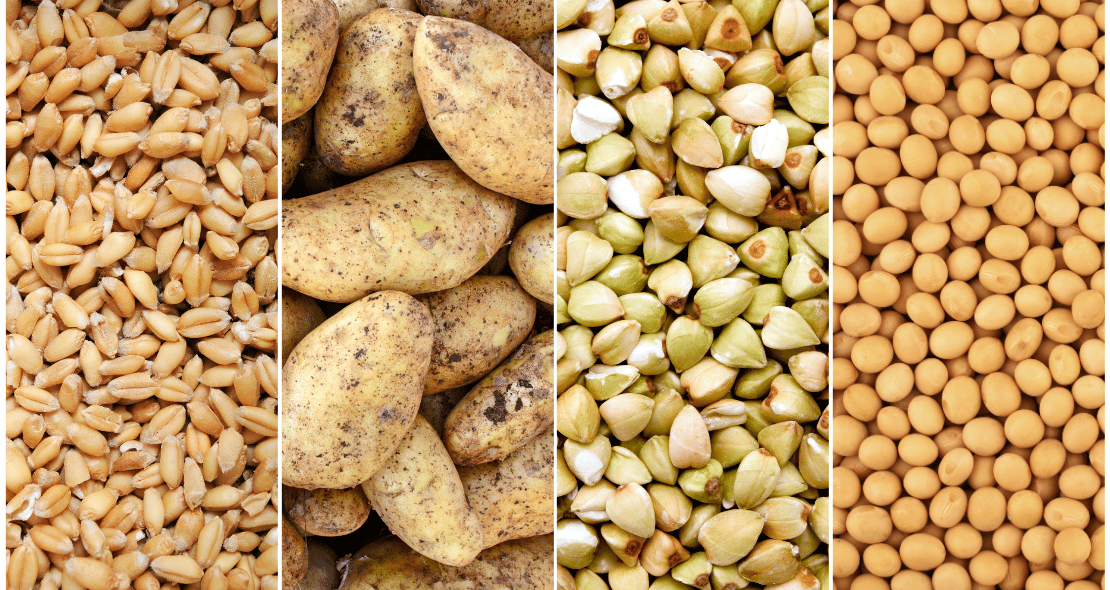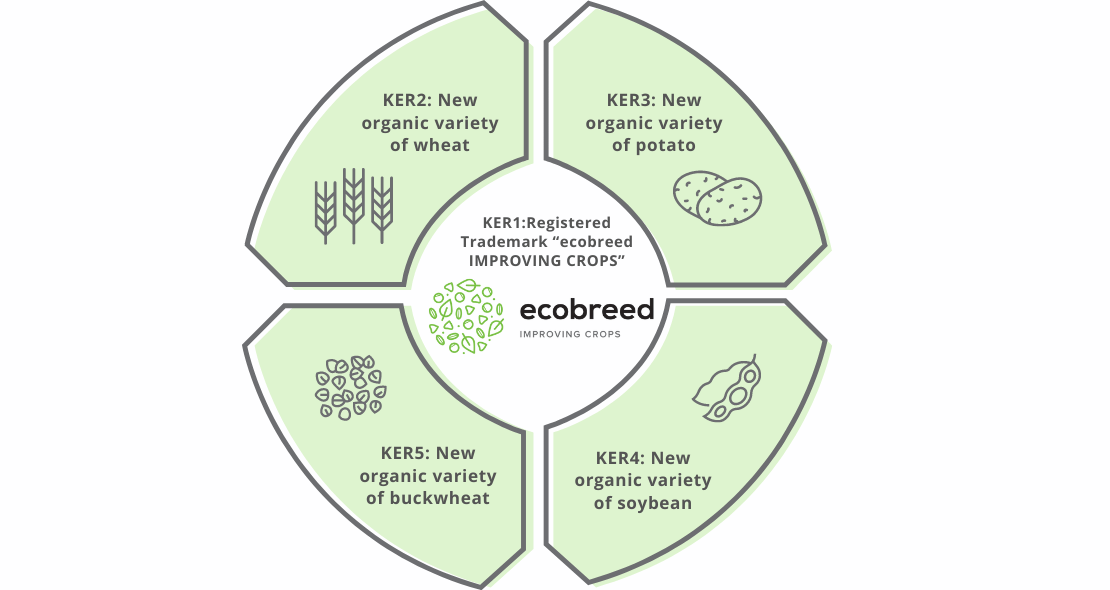The aim of the EU H2020-funded ECOBREED project, which ran from April 2018 to February 2024, was to improve the availability of seeds and varieties suitable for organic and low-input production. The activities focused on four crop species, which were selected for their potential contribution to increasing the competitiveness of the organic sector: common wheat, potato, soybean and buckwheat.
ECOBREED has developed organic breeding methods, strategies and infrastructure; varieties of all four crops with improved stress resistance, resource use efficiency and quality; and improved methods for producing high quality organic seed.
ECOBREED increased the knowledge base for breeding, selecting and improving varieties for organic and low-input production. It has also improved access to a wider pool of quality seeds, varieties and cultivars for organic production. Through the provision of detailed training programmes, it has also significantly contributed to improving the efficiency of seed multiplication and breeding methods for the organic sector.
The project is actively exploiting its results and we are pleased to present the ECOBREED Key Exploitable Results (KERs):
- KER 1: Registered Trademark “ecobreed IMPROVING CROPS”
- KER 2: New organic variety of wheat
- KER 3: New organic variety of potato
- KER 4: New organic variety of soybean
- KER 5: New organic variety of buckwheat
If you have any questions or would like to receive more detailed information on the Key Exploitable Results, please do not hesitate to contact us:
- ECOBREED Project Coordinator: Vladimir Meglic, Agricultural Institute of Slovenia, Ljubljana, Slovenia: vladimir.meglic@kis.si
- KER1 contact: Antoaneta G. Kuhar, Agricultural Institute of Slovenia, Ljubljana, Slovenia: antoaneta.kuhar@kis.si
- KER2 contact: Heinrich Grausgruber, University of Natural Resources and Life Sciences, Vienna, Austria: heinrich.grausgruber@boku.ac.at
- KER3 contact: Peter Dolničar, Agricultural Institute of Slovenia, Ljubljana, Slovenia: peter.dolnicar@kis.si
- KER4 contact: Vuk Djordjević, Institute of Field and Vegetable Crops, Novi Sad, Serbia: vuk.djordjevic@ifvcns.ns.ac.rs
- KER5 contact: Dagmar Janovska, Crop Research Institute, Prague, Czech Republic: janovska@vurv.cz


